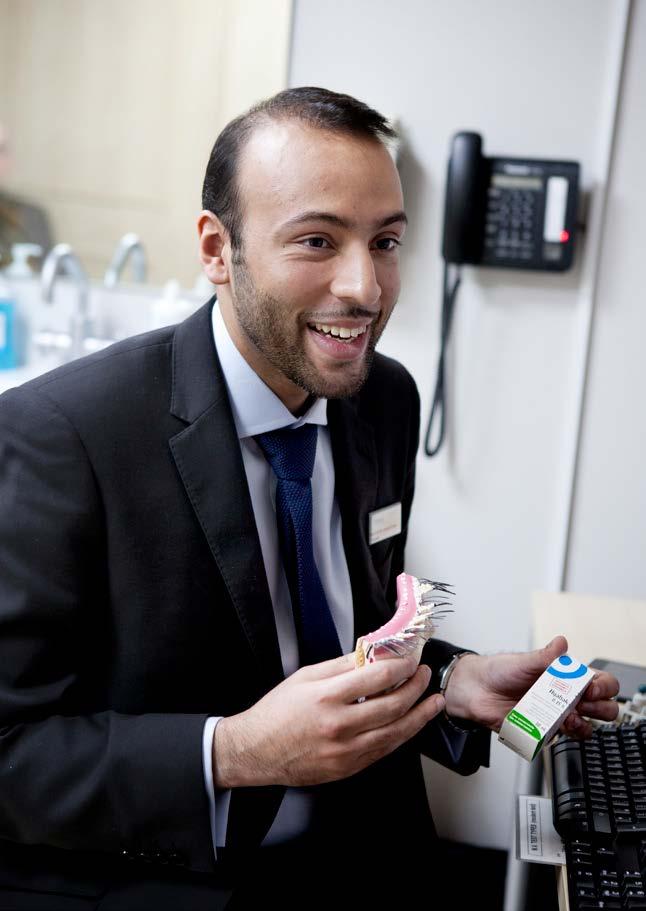
3 minute read
Developing a business plan
from Independent Practice Guide
by TheAOP
chapter 2
Developing a business plan
Advertisement
A business plan takes the idea you have for your business and helps you turn it into an actual business, and may be necessary for financial investment/loan. It allows those lending you money to see how the business will hopefully generate a return on the investment, and provides a level of assurance regarding its viability. Generally, it involves thinking through the various parts of your business to make sure everything will work. It is a fairly lengthy piece of work and may take a few weeks to complete. This chapter covers what you should consider in your business plan.
Your business and key objectives
This section should describe your business and its core services and products. It should also provide an overview of the aims your business is trying to achieve and over what length of time this will occur.
Your skill and experience
This section should provide an overview of your experience in relation to the business. This is where you might detail your experience, not just as an optometrist or dispensing optician, but skills that relate to managing a team of employees and actually running a business. If they are optics related, great, but even if they aren’t, don’t worry, you may have transferable skills that are equally as relevant. In essence, you are showcasing why the people lending you money can be confident that you can deliver.
This section should detail who your target customers are and how you will attract and engage with them. It is also where you should explain how you have identified your potential customers and what competition you face. This is also the section that should be used to explain why your customers will choose you over the competition.
Unique Selling point (USP)
A USP is the item or idea that makes your business stand out from the crowd. For independent practices this is normally their clinical expertise. By having greater control over your own diary and appointment booking, as well as the type of equipment you use and the service you provide, you can really stand out from the crowd.
Sales and marketing
Here you will detail exactly how you will attract customers. You should outline the products that you will stock, the branding and look of your practice, and the pricing strategy that you will employ. You will also need to demonstrate how you will let patients know that you are in business or have bought the business. This might include details of advertising campaigns, social media engagement, open days, or talks to local groups. It might even be something as simple as a stand at the village fair.
Operating the business
How many staff will you need? What will be their roles? Where will the practice be based? What equipment will you need? This section should also talk about legal obligations with which your business will need to comply. For an optical practice this will mean considering the need to register with the NHS to provide General Ophthalmic Services (GOS) sight tests and a possible need to register with the GOC as a body corporate.
People also often consider risks to the business in this section. For optical practitioners this would normal involve the risk of action by the GOC and civil claims for negligence. The AOP is a leading provider of professional medical malpractice insurance.
In this section you should outline how you would fund the setup costs, including rent, refitting the premises, equipment and advertising. This may be a combination of personal contribution, loans from friends and family, or bank loans or other sources of finance.
You should also include cash flow projections. These include sales forecasts and expenses and should include any money in or out of the business. Don’t forget to include the salary that you need to draw from the business, but be realistic. While it would be nice to instantly draw a six-figure salary in the early days, you need to draw a salary that allows the business to first survive and then to thrive. With a little luck you can get your reward for all the hard work once everything is up and running.
There are a number of online resources available to guide you through the process of writing a business plan. A few examples can be found at:
1
1 1 The Prince’s Trust — www.princes-trust.org.uk/help-for-young-people/toolsresources/business-tools/business-plans UK Government — www.gov.uk/write-business-plan Barclays Business Banking — www.barclays.co.uk/business-banking/businessinsight/writing-a-business-plan



